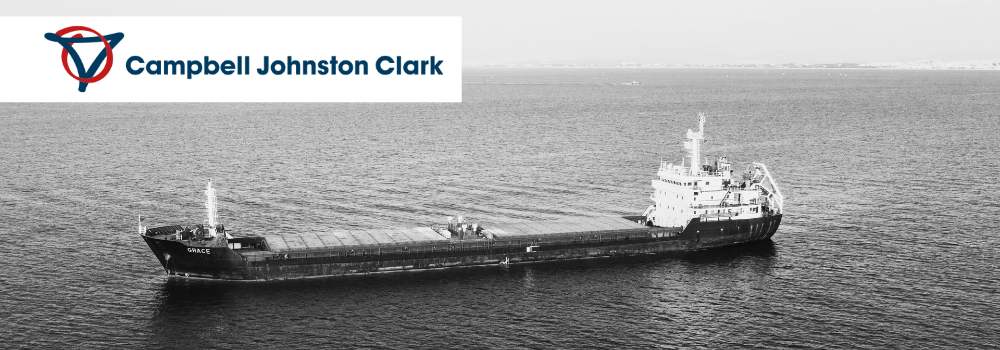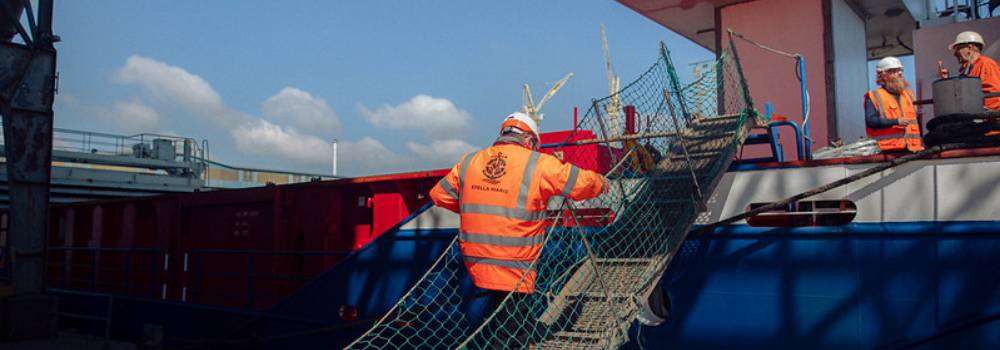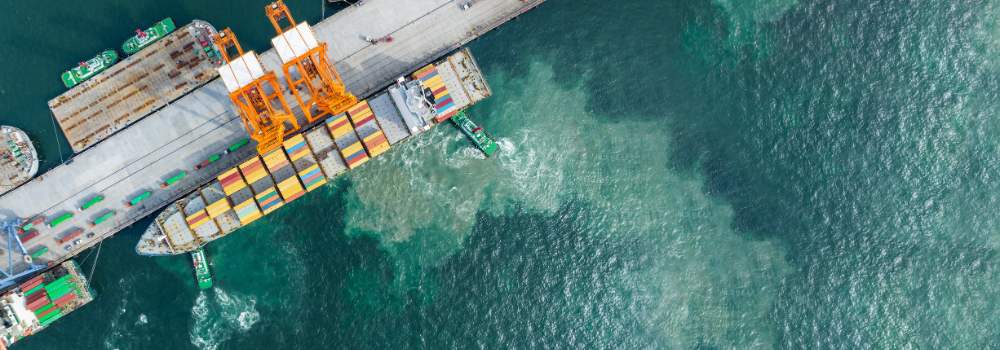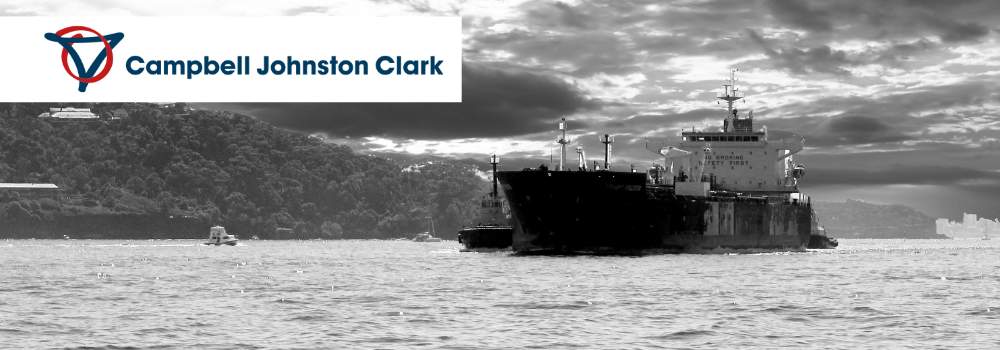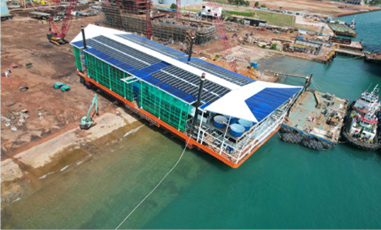A question arose as to whether a buyer is obliged to register its vessel and, if so, at what stage of a sale and purchase transaction it is obliged so to do.
By way of context, a disgruntled owner and his boat builder had agreed a settlement whereby the owner’s three year old superyacht, which had spent more time under repair than it had at sea, was to be sold back to the boat builder. Due to the unfamiliarity of the boat builder with the construction of such large yachts, the yacht had suffered a stream of significant mechanical defects since its delivery to the buyer culminating in an exhaust fire whilst on a trial run offshore Florida.
Initial advice was that in order to avoid sales tax the yacht should be moved into international waters. However, given the condition of the yacht that was considered an option of last resort and (as a result of the advice provided) it was decided to deliver the yacht in its Floridian berth.
The yacht was purchased by the boat builder for cash and aside from the discharge of a mortgage by the existing owner’s lender, the yacht was otherwise unencumbered at the time of the sale.
At closing, the seller delivered to the boat builder all of the delivery documentation required under the terms of the settlement agreement signed between the parties. This documentation included a bill of sale and a “clean” Transcript of Register issued by the yacht’s ship registry.
It became apparent that whilst the seller had provided all documents required in order for the buyer to proceed with the registration of the vessel, the boat builder (either as a result of its own, or its lawyers’ oversight, unfamiliarity with registration procedures, inaction or even intention), had not taken any steps to apply for the transfer of ownership of the yacht on the register.
Notwithstanding the failure (for whatever reason) of the boat builder to initiate the recordation of the transfer of ownership in the yacht in its (or a nominee’s ownership), the seller proceeded with the delivery as to fail to have done so would have risked placing it in repudiatory breach.
The question was posed as to what (if any) potential impact the boat builder’s failure to register its title on the ship register may have on the seller.
Registration – General Principles
The freedom of the high seas is one of the fundamental principles of public international law. Such freedom means the unrestricted access of vessels belonging to all nations, to all parts of the sea that are not included in territorial waters of a State. However, in order that the principle of unrestricted access to the high seas should not lead to a situation of anarchy and/or abuse, international law lays down a number of rules providing a framework for the exercise of that freedom but looks to individual States to ensure and enforce compliance with those rules through the jurisdiction exercised over their national vessels.
A cardinal rule is that jurisdiction over a vessel on the high seas resides solely with the State to which the vessel belongs. A second rule which is a corollary of the first is that all vessels using the high seas must possess a national character.
A vessel possessing no nationality – a stateless ship – enjoys no protection in international law. It is unable to engage in lawful trade since ports will deny entry to it or even refuse to let it leave.
The term generally used to describe the attribution of national character to a vessel is “registration”, meaning the entry of the vessel in the public records of a State. Thus, for example, for the purpose of many international shipping conventions, registration in a particular State is a sufficient connecting factor for regarding the vessel as possessing that State’s nationality.
Every State maintains registers in which vessels possessing the nationality of that State and flying its flag are entered. Individual States fix the conditions for the entry of vessels in their registers.
Public v Private Law
Registration means the entering of a matter in the public records. Registration is generally – but not always – not only a precondition for but also the test for a vessel’s nationality. This is the public law function of registration as opposed to the private law function. Public law is concerned with the framework of government, the function of public officials and adjustment of relations between the individual and the State. Private law is concerned with the adjusting of relations and securing of interests of and settling of disputes between individuals.
As such, it might be said that public law views a vessel in the dynamic sense of a floating community carrying with it the sovereignty of the State whose flag it flies, whilst private law sees the vessel in the static sense of a chattel, an item of moveable property over which one or more persons may have rights which the law considers worthy of protection.
The Merchant Shipping Act of 1894 explained the differences between public and private law as follows:-
“There are two points of public policy which may be suggested in these acts relating to shipping: the one a policy regarding the interests of the nation at large, relating to the question who shall be entitled to the privileges of the British flag; the other policy being similar to that which gave rise to the evidence of title in those who deal with the property in question.”
The role of the Bill of Sale – Transfer of title and risk
The bill of sale is the document used to evidence and effect transfer of ownership (i.e. property or title), in a vessel from a seller to a buyer. The delivery of the bill of sale (usually in exchange for payment of the purchase price), will operate to transfer ownership of the vessel from the seller to the buyer.
It is the universally recognised operation of the bill of sale as the document which transfers title that is at the crux of the issue in question, because what this means is that registration of a vessel cannot then be conclusive evidence of title to that vessel. In The Bineta the unpaid owner of a yacht retained possession in exercise of the unpaid seller’s lien despite the yacht being registered by and in the name of the buyer. The unpaid owner subsequently sold the yacht to a third party in whose favour it executed a new bill of sale and the court held the owner could pass title to the third party.
Accordingly, if one takes the case in point, whilst registration ensures that the owner’s title is valid against third parties, when a bill of sale is delivered by a seller to a buyer title and risk in a vessel is passed from the seller to the buyer, whether the buyer enters its details on the register or not.
As evidence of the passing of title and risk a protocol of delivery and acceptance will be signed by the seller and the buyer in duplicate originals and dated and timed by the parties which evidences the exact moment at which title and risk in the vessel has passed.
Once the bill of sale has been delivered and title and risk transferred to the buyer, it is then for the buyer to register its interest in the vessel. Notwithstanding the transfer of title, the vessel may still appear on the register as owned by the seller until the register is changed or the vessel deleted from the register. This could lead to seller being sued by a third party (searching the register) with a claim against the vessel that might have only arisen after delivery. However, assuming the claim in question did in fact arise subsequent to the transfer of title in the vessel, the seller would be able to show it is not liable because title and risk had been transferred to the buyer by the bill of sale and that transfer evidenced by the parties’ execution of the protocol of delivery and acceptance.
The fact that a vessel remains registered in a seller’s name following completion of a sale is not that unusual if one considers that when a vessel is sold and moved to another flag the seller is usually given up to a month to delete the vessel from its previous registry.
Registration – Immediate or Delayed?
In the normal course, registration of a transfer of title/ownership in a merchant vessel will take place immediately upon delivery of the vessel.
This is due to at least two overriding factors. First, the likelihood that the buyer has arranged financing to enable it to acquire the vessel will mean that the incoming lender will insist that the vessel is registered immediately upon transfer of title so as to ensure that the lender’s mortgage can be registered against the vessel simultaneously with (or as soon as possible following) the payment of the purchase price constituted in part at least by the loan advance. The registration of the mortgage gives notice of the creditor’s interest in the vessel and thus protects that interest against third parties. It also fixes priority between competing mortgages.
Secondly, if the vessel concerned is trading then it is more than likely that the buyer will be anxious to complete the formalities concerning transfer of ownership/registration in order to obtain the vessel’s new registry documents as soon as possible and not unduly delay the vessel’s departure from the delivery port.
However, in the case of a vessel that is not being financed and is not trading (in the case study above, the yacht is sitting in a damaged condition on a berth in Florida), then the demand to deal with the transfer of ownership/registration on an immediate basis are much reduced.
Conclusion
Whilst international law requires that every merchant ship be registered in a flag state, registration of a pleasure yacht is not currently compulsory (at least in the UK) unless the vessel is subject to a mortgage, or unless it is intended to sail in international waters.
In this case therefore, whilst the buyer may delay its registration of its title to the yacht on the registry, because the yacht is sitting at its berth and is unlikely to move, there is arguably little detriment to the seller during the period post-delivery that it remains noted as the registered owner but the buyer will need to complete the transfer of ownership on the register (or perhaps move the yacht to a new flag) before physically moving or otherwise using the yacht.
Stuart Plotnek
Managing Associate, Campbell Johnston Clark
[email protected]
Image and profile




